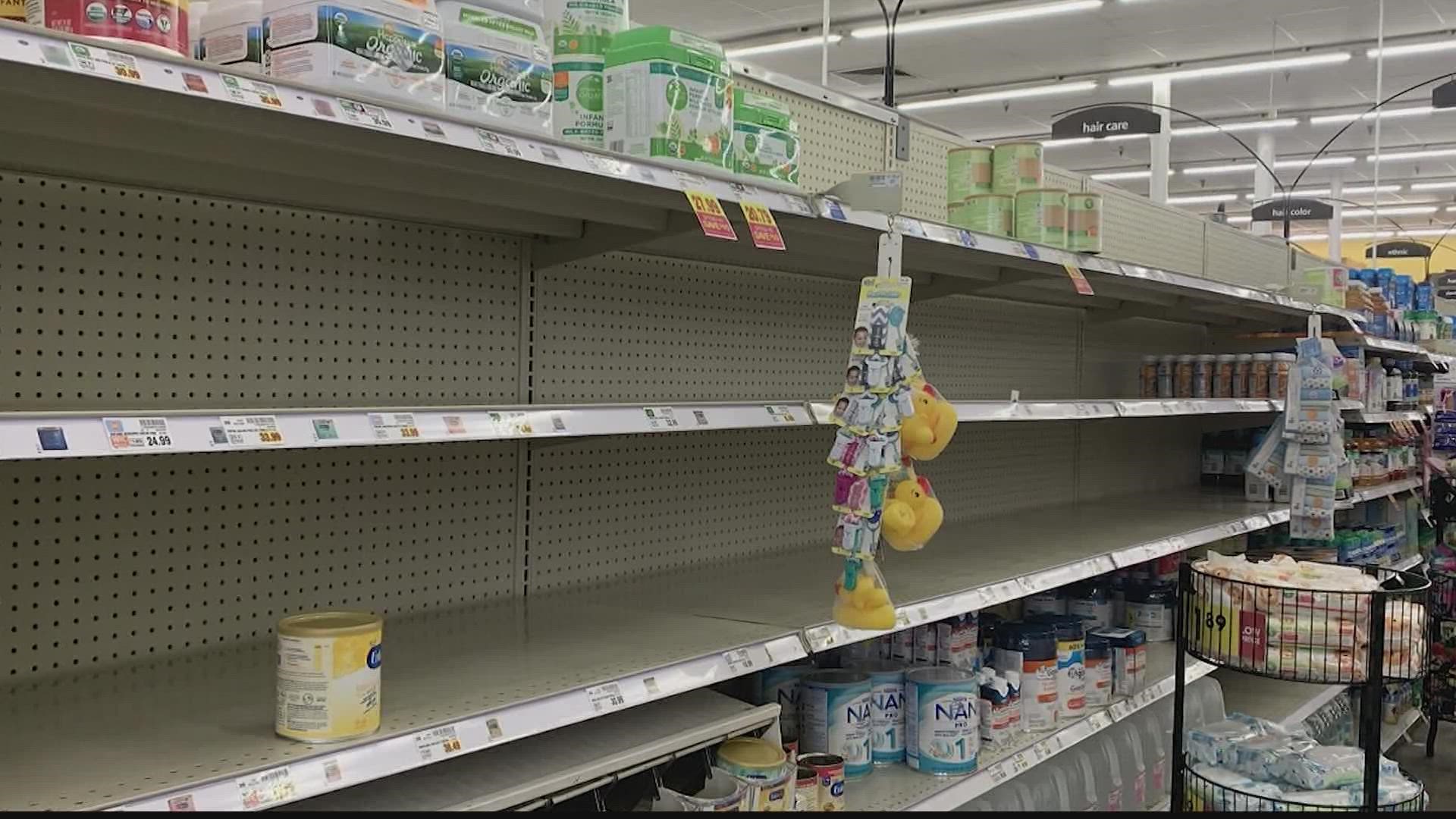WASHINGTON — President Joe Biden on Wednesday said he was not briefed on the prospect of nationwide shortages of infant formula for about two months, and he acknowledged the strain on families as his administration struggles to address the situation.
Yet company executives at a meeting Biden hosted from the White House told the president that they knew the substantial impact that the shutdown of a major production plant in February would have on the U.S. supply almost immediately.
“They did, but I didn’t,” Biden told reporters later, saying he was not made aware of the severity until early April.
The delay, unexplained by Biden or White House aides, undercut the administration's efforts to demonstrate that he has been on top of a problem that has compounded stress and economic difficulties for families with young children at a time when Americans are already struggling with inflation.
White House press secretary Karine Jean-Pierre insisted that the administration began working to address the crisis within days of the plant's closure, but could not explain the delay in raising the issue to Biden. She acknowledged that he is “frustrated” by the situation.
“We have been doing this whole of government approach since the recall,” she said. “We have been working on this for months, for months. We have been taking this incredibly seriously.”
In recent weeks, the government has imported foreign supplies and used the Defense Production Act to speed domestic production of infant formula. But those steps did not begin until mid-May, once retailers began rationing supplies and store shelves were emptying.
“There’s nothing more stressful than feeling you can’t get what your child needs,” Biden said, adding that as a “father and a grandfather,” he understands how difficult the shortages have been for parents and their children.
Jean-Pierre said Biden was satisfied with how the Food and Drug Administration has handled the response, though the agency itself has promised to conduct and after-action review of what it described as a deficient effort.
The agency's response was “too slow and there were decisions that were suboptimal along the way,” FDA Commissioner Robert Califf told lawmakers last week.
Biden hosted the roundtable with leaders of manufacturers ByHeart, Bubs Australia, Reckitt, Perrigo Co. and Gerber. Notably absence was Abbott Nutrition, whose Michigan plant was shut down in February over safety concerns, leading to the domestic shortage. The White House did not explain why Abbott was not included.
The meeting Wednesday was a chance to provide an update on what the administration is calling “Operation Fly Formula” to import formula and to use the Korean War-era production law to require suppliers to prioritize their orders in a bid to ease bottlenecks.
The White House announced the third and fourth round of formula shipments from overseas would begin next week, from producer Kendamil in Britain and from Bubs Australia.
The shipments would bring Kendamil formula from Heathrow Airport in London to U.S. airports over a three-week period, starting June. 9. The flights will carry about 3.7 million 8-ounce bottle equivalents, shipped free of charge by United Airlines.
The first shipments will include Kendamil Classic Stage 1 and Kendamil Organic formulas, which will be available at Target stores across the United States.
And Bubs Australia will ship the equivalent of 4.6 million 8-ounce bottles of its infant formula on Defense Department-contracted commercial aircraft from its hub in Melbourne, Australia, to Pennsylvania and California on June 9 and June 11, respectively.
The imports will help but will not immediately bring an end to supply shortages that have left people who depend on formula facing empty shelves or limits on purchases.
The Food and Drug Administration began focusing on Abbott’s plant last fall while tracking several bacterial infections in infants who had consumed formula from the facility. The four cases occurred between September and January, causing hospitalizations and two deaths.
After detecting positive samples of rare but dangerous bacteria in multiple parts of the plant, the FDA closed the facility and Abbott announced a massive recall of its formula on Feb. 17.
U.S. regulators and Abbott announced an agreement last month that would help pave the way for reopening the plant, though production has not restarted.

